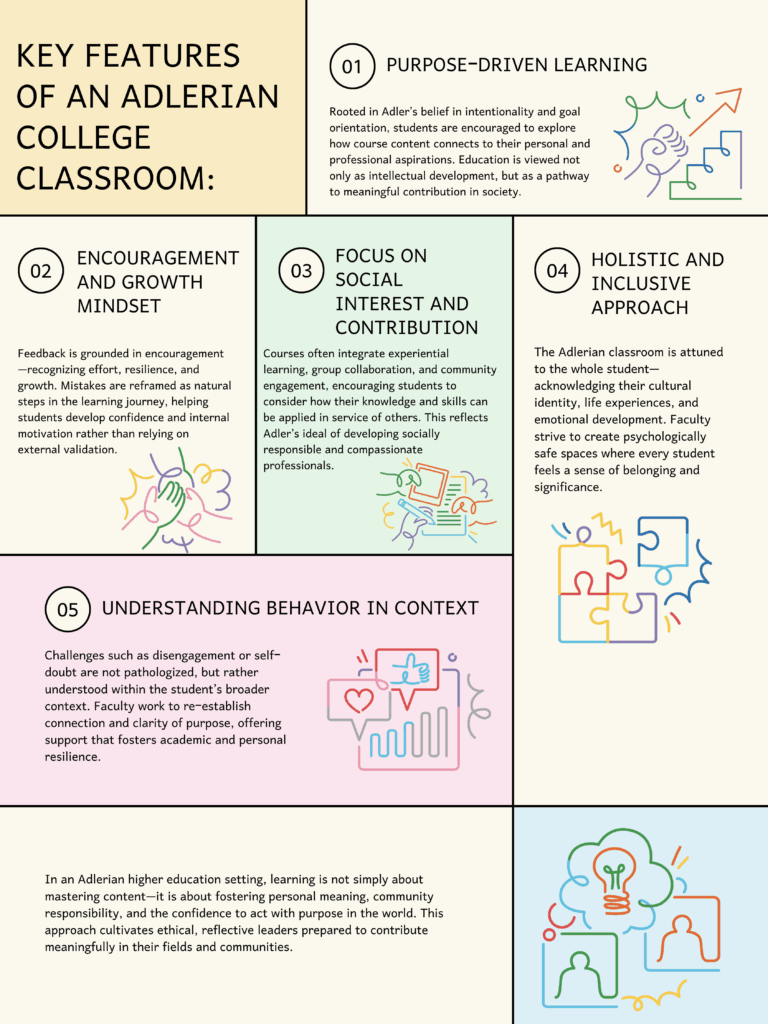Information for
Helpful Links
Adler Graduate School educates empowered counselors with a passion for social justice and community action. Discover our master's degree and certificate programs.
An Adlerian classroom is grounded in Alfred Adler’s core principles of social interest, encouragement, and purposeful living. It is a student-centered, inclusive learning environment where adult learners are treated as capable, self-determining individuals who thrive when they feel connected, respected, and valued within the academic community.

